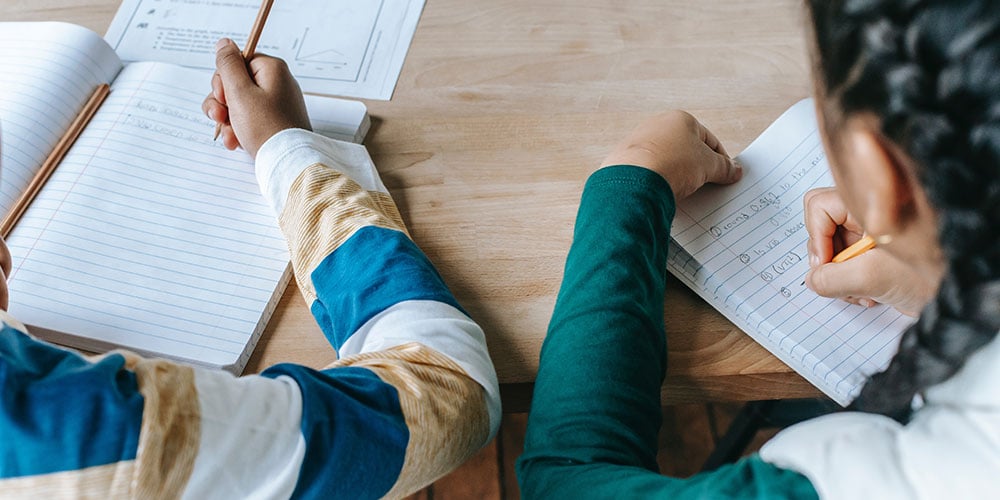Chapters
- How to know if you have dyslexia?
- How does a child with dyslexia behave?
- How do I find out if my child is dyslexic?
Living with dyslexia can make learning frustrating. There is so much stigma around this complex term, what dyslexia means, the causes and the dyslexia symptoms to look out for. Read on as we guide you through the basics of dyslexia (dyslexia explained!) and how it could affect your child’s learning, as well as offer support to you as parents to support them.
👉🏼 How to know if you have dyslexia?
Dyslexia is a common learning difficulty (although we prefer the term difference!) that can cause issues with reading, writing, spelling and processing. It is not a disability, or a disease. It’s estimated that every 1 in 10 people in the UK have dyslexia.
Dyslexia is lifelong and cannot be ‘cured’, instead it’s about managing it, and not letting it take over your life with the support of those around you. Dyslexics (those with dyslexia) struggle with more things than just writing, like communicating and processing, so it can’t just be combated in the classroom. 📗
But what causes dyslexia? Well, it’s mainly genetic, meaning dyslexia runs in families and is more likely to be passed on through DNA. But studies also show that it can be linked to low birth weight or drinking or smoking during pregnancy. Heard of the four types? Be sure to read our other posts which explore this in more depth.
Rather than dyslexia symptoms (a word we’d usually associate with illnesses), it’s important instead to look for signs or dyslexia causes. The signs of dyslexia in children include:
- Being slow to start or wanting to start reading, or showing no interest in books at all.
- Finding it difficult to break words down or spell common words (as well as advanced ones).
- Having difficulty remembering coded information (like words or numbers).
- Struggling to keep up with writing tasks, especially in comparison to their peers.
- Finding it hard to adhere to, listen to or carry out directions.
👉🏼 How does a child with dyslexia behave?
Language is important in the way we communicate. Since this problem can interfere with listening to teachers and memory, students with this problem can face difficulties in school. Continued low performance can seriously affect self-esteem, causing children to feel stupid, even though they may be very talented.
It’s important to recognise that the signs (or ‘dyslexia symptoms’) we mention above will undoubtedly affect a child’s behaviour and ability to learn, and might cause a child to be labelled as ‘stupid’ or ‘misbehaving’. 🚩 This is very far from the truth, and can be really damaging.
Dyslexic children and teens may show signs of their dyslexia in their social behaviour and attitude, what are the effects of dyslexia in your child?
🙄 Understanding basic expectations - because of issues with recall and memory, a child with dyslexia may misinterpret or mishear a basic expectation given by a teacher. If this happens more than once, it’s a downward spiral to being detached from the rest of the lesson.
😶 Trouble talking to teachers or friends - if dyslexics are constantly worried about saying or writing the right words, they may choose not to communicate completely. If they can’t verbalise when they don’t understand in class, dyslexia causes them to go under the radar and miss out on learning (at GoStudent we make sure to give children the right tools to communicate when they’re unsure).
😟 Having poor mental health, and saying yes to peer pressure - dyslexia is likely to affect a child’s mental health, particularly social anxiety and depression. Imagine constantly feeling like you’re not good enough at school? Dyslexia exists on a continuum from mild to severe, both ends cause emotions like feeling left out.
👉🏼 How do I find out if my child is dyslexic?
Though this condition can be identified at any age, dyslexia often goes undiagnosed and untreated as a learning disorder. It might be time to think about getting the right support. In the UK the first step is to speak to your child’s teacher or their school's special educational needs co-ordinator (SENCO) about your concerns.
You can also go directly through the British Dyslexia Association, who can support local assessment routes.
Usually, the person assessing will speak to your child’s teachers, or carry out some observation and testing over a period of time. Some of the things they’ll monitor are your child’s pace of writing, if they struggle decoding words, if they have trouble memorising and retaining information, if their speech is impaired and generally if they have difficulty with reading comprehension.
When dyslexia is identified, the right support can be put in place such as specialist 1-1 intervention, help with phonics and processing, and adapting dyslexia learning methods like using specific technology (for example being allowed to type, not write by hand), to create more equity in the classroom and even for assessments.
Remember, dyslexia is not a disability, but a difference. Dyslexics can be some of the most creative, intelligent and attentive people in society because of their ability to interpret things differently. 🌈 With the right understanding about neurodiversity, all dyslexic children can be successful in their learning.










